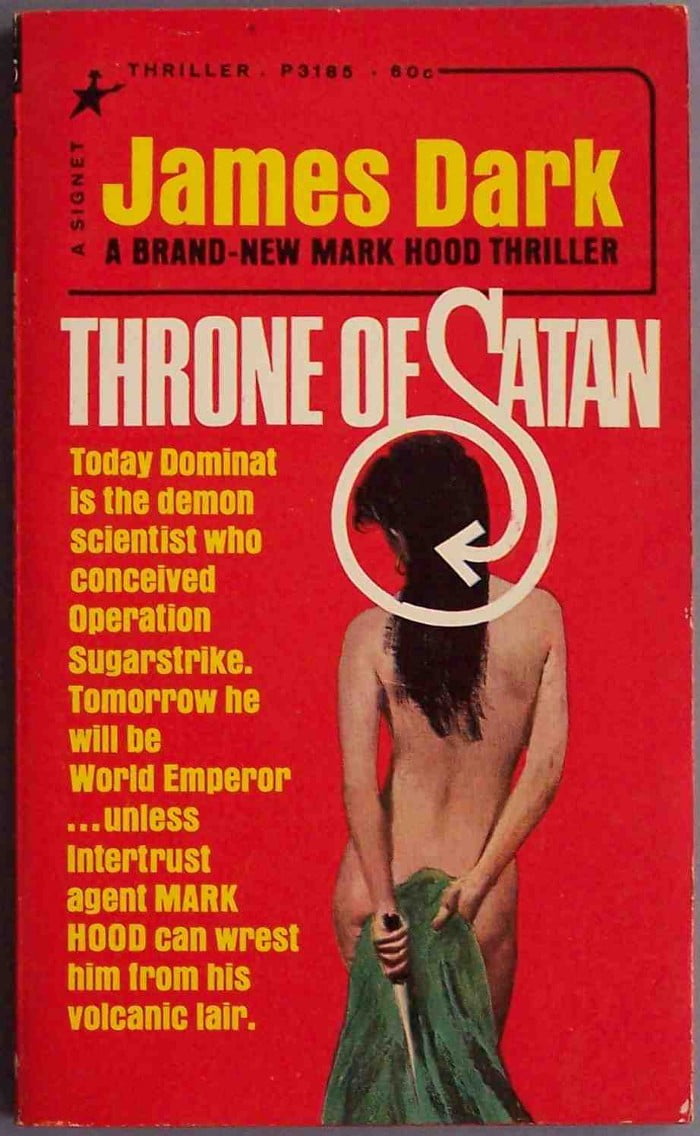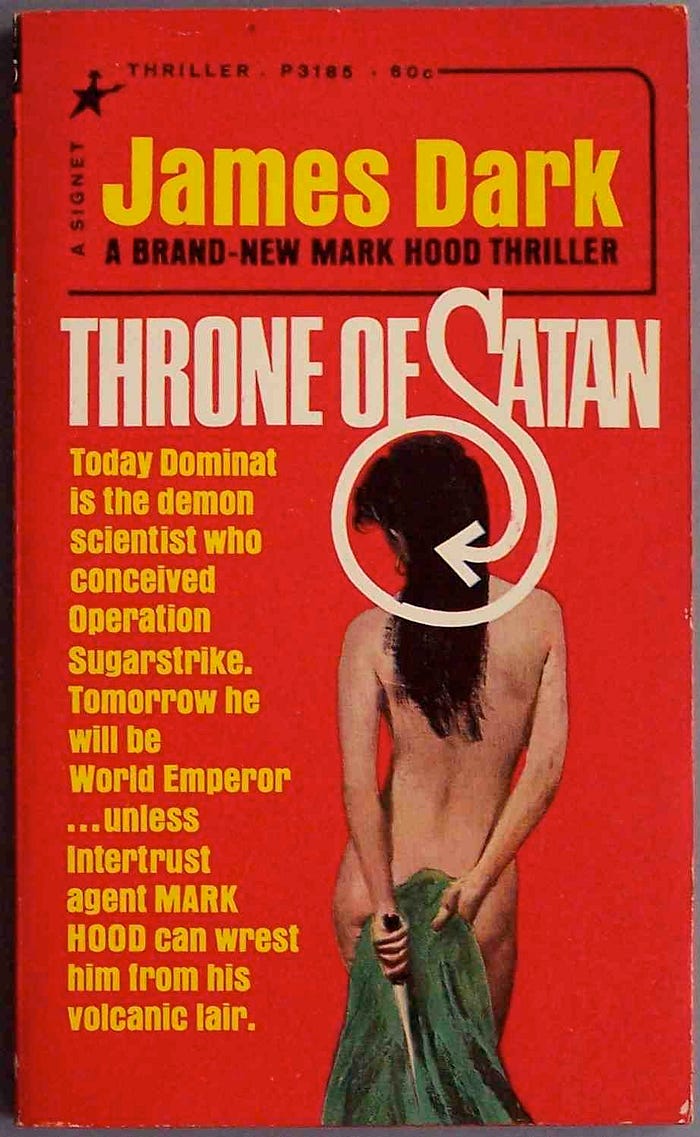
9 Best Jobs for People Who Love Travel
- January 4, 2022
- 0

IfI believed in the afterlife (you’ll see why I don’t at the end of this sentence), then I’d be sure that I’m going to hell.
The demon greeting me on the River Styx, who will look like the blown glass demon I kept in my childhood bedroom, will hold a long list of my sins, possibly including the fact that I owned a blown glass demon.
But I have no idea what will be at the top of the demon’s list. What’s the worst thing I’ve ever done?
I created a list of my top sins:
- Dumping girlfriends
- Writing articles for a magazine for male Marlboro smokers
- Stealing cash from a store I worked at
- Carbon emissions
- Dumping those girlfriends for someone else
- Writing a column questioning nut allergies
- Cheating on high school European History tests
- Hoarding money that could save lives
- Watching porn
- Eating animals
- Cheating on those girlfriends before I dumped them for someone else
- Coveting
- Answering emails while my mom talks on the phone
- Drinking coffee that’s not fair trade
- Lying to those girlfriends about cheating and dumping them for someone else
- Appearing on Fox News shows
To figure out which sin was most hellacious, I needed to decide whether to use a utilitarian framework (what’s caused the most harm) or a deontological one (what action is the most inherently atrocious).
Then I had to add another sin to my list:
- Trying to impress people with the words “utilitarian” and “deontological”
When I started thinking about this ten years ago, I read a 1972 thought experiment by the utilitarian philosopher and Princeton professor Peter Singer. He asked you to imagine seeing a toddler drowning in a knee-deep pond. Would you save her even though it would ruin your new shoes, require you to dry clean your suit, and make you late for work? I found this easy to answer, since I would go straight to work with muddy clothes, hoping people asked about them so I could tell them I saved a toddler. It also caused me to add another sin:
- Putting mud on my clothes and lying about how it got there
Singer’s point is that a dry cleaning bill is about as much as it costs to save a life in an undeveloped country. Now that technology makes us aware that people are dying from a lack of clean water, and we can buy them potable water by pressing a few keys, not doing so is the same as walking by the drowning toddler to keep our shoes clean.
When I ran my meat eating and money hoarding sins by Singer ten years ago, he was not reassuring. “Maybe hell is what you deserve, if anybody deserves hell,” he said.
Not loving Singer’s answer, I called Josh Knobe, a philosophy professor at Yale.
- Seeking advice that justifies my worst behaviors
Knobe, a sweet, thoughtful man who registers a stunningly high 1.21 on the Stein Scale™, suggested we use a historical lens to order my list. We’d list the most evil acts ever committed and see which of my sins was closest.
“Weren’t they things they did not out of indifference to morality, but because they thought they were morally right?” Knobe asked. Hitler, Pol Pot, Stalin, the Crusaders — they all believed they were heroes improving the world. “Adolph Eichmann might have stayed up at night, saying, ‘Cheating on my girlfriend was the greatest sin of my life,’ but, looking back, we wouldn’t say that now.”
Seen this way, my greatest sins are probably the columns I wrote to shame people who voted for Trump or didn’t wear masks. Acts I felt were virtuous.
But managing your life to avoid hell means not prioritizing going to heaven. Avoiding the sin of extremism prevents you from accomplishing anything great. You lose both Pol Pot and Gandhi.
Knobe quoted Friedrich Nietzsche to me: “It is not your sins that cry out to heaven, but your modesty, the very miserliness of your sins cry out to heaven.”
- Answering emails while my mom talks on the phone instead of yelling, “I have masterpieces to write, woman!” and slamming the phone down just for the drama because slamming doesn’t do anything with a cell phone
Then again, Knobe reconsidered, we’d rank slave owners as some of the most horrible sinners. And slave owners weren’t zealots. They sensed their evil, but proceeded because they could get away with it, the way I do with meat eating. Some truly believed owning other human beings was fine.
Because it’s hard to escape the morality of your community. “In feudal times, the men who hit their wives would have thought the worst thing they did was not being sufficiently loyal to the lord who ran their fiefdom,” Knobe said. “ It would be really surprising if in 2022 we totally got it right and when we arrive in hell Satan says, ‘You were exactly right about the worst thing you’ve ever done!” Knobe’s Satan impression needs a little work.
I told Knobe I thought he was right, and, therefore, there’s no point in trying to be good when we can’t know how future generations will rank our sins. Knobe said that in all his years of studying philosophy, he’d never heard that lame excuse for nihilism.
Even given my historical limitations, I needed to figure out a moral hierarchy as best as I could to live the best life I can. I ran my list of sins by my friend Jessica Jackley, a former evangelical Christian who co-founded the microfinancing charity Kiva. She recently started Alltruists, a subscription box for kids that teaches the importance of giving to charities. So I knew she was going to send me to hell for not giving enough money away.
To my surprise, Jackley rejected Singer’s utilitarianism. “I don’t want Alltruists to be about, ‘Hey kids, the best thing you can do is give money,” she said. Instead, each box tries to teach kids the complexity of a problem such as homelessness or refugees, and how to empathize with those who suffer. “If you’re an investment banker should you just give more of your money away? But how did you get all that money? How did you pull that one off? What are you building for the world? Are you building a big old shitty bank that invests in terrible things?”
Instead of not giving enough to charity, Jackley thinks I’ll go to hell for the love I withheld. She thought the best way for me to understand what she meant was to read Scott Cairns’ poem, The Entrance of Sin.
- Not reading the poem your friend asked you to, because it’s a poem
Luckily she explained what she meant. “I’m sure it’s the things you didn’t do. It’s pretending I’m asleep when the baby wakes up and my husband Reza drags himself out of bed. It’s being able to tune out the extraordinary constant pain of the world.” Which does sound terrible. Apparently not nearly as terrible as working for an investment bank, but still, pretty terrible.
When I pressed her to tell me what specifically I was going to hell for, she patiently listened to my confessions before answering: “You mentioned cheating on a girlfriend twice. Here in this email and when we talked. That then?”
That feels like the truth. Though if the blown glass devil animates the pile of animal carcasses I’m responsible for and has them slowly eat me, I won’t be surprised. But I’m really hoping that instead I just get to watch my exes cheat on me.
[“source=torrens”]



















